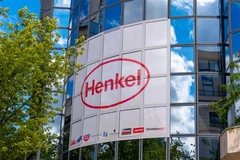Mass balance debate: Should the EU implement “fuel exempt” calculation standards for recycling?

04 Apr 2023 --- A cross-sectoral body of material suppliers and associations has called on the European Commission (EC) to implement a harmonized method for calculating chemically recycled content. The method the group requests is a fuel-exempt mass balance approach, which it says is essential if the EU is to meet the packaging and packaging waste (PPWD) revisions.
However, environmentalists say the requested methods are “too loose” and would reduce transparency, allowing for unreliable or exaggerated environmental claims. This could threaten the EC’s effectiveness in combating greenwashing, as established recently in its Green Claims Code directive.
Mass balance is an accounting principle that matches inputs (such as plastic waste) with outputs from a recycling or production process to determine recycled content levels.

Fuel exemption would exclude fuel used as energy in the process and co-products produced and used as fuels, with the remaining outputs freely allocated.
Speaking to PackagingInsights, John Sewell, secretary general of Chemical Recycling Europe, explains that a fuel-exempt mass balance method “is important both from an economical and environment perspective in that it is an approach widely accepted and will enable scale up from an investment perspective and aligns with definitions within the Water Framework Directive.”
 Mass balance calculations can determine recycled content levels but different methods can produce different results.Standardizing measurements
Mass balance calculations can determine recycled content levels but different methods can produce different results.Standardizing measurements
According to the cross-sectoral statement issued to the EC, adopting a harmonized mass balance chain of custody, which would be third-party certified, must be taken quickly if the packaging industry is to meet its environmental targets.
Scaling-up chemical recycling infrastructure is necessary in this context and would also set a precedent for non-packaging sectors like automobile and construction, say the stakeholders.
“In our view, a fuel-use exempt model would provide for a robust system, viable with chemical recycling routes, and allow producers and users of recycled content to reach the levels expected by the market and required by EU legislation in a timely manner, so as to drive circularity to the next level,” reads the cross-sectoral letter.
“In this context, third-party verification and certification of the calculation method will be necessary to ensure credibility throughout the whole value chain and build engagement and trust among consumers.”
The issue of fuel exemption
However, Zero Waste Europe (ZWE) says fuel exemption would become a “major tool for greenwashing” and that it would allow for “very flexible rules – such as a liberal allocation of recycled feedstock to the final product of their choosing, regardless of its true content.”
“This would mean that a plastic product could be sold as fully recycled while containing only very small fractions of actual recycled content. This is a simplistic and meaningless bookkeeping exercise,” asserts ZWE.
 Many industry stakeholders believe chemical recycling is a requirement to meet European sustainability targets.A ZWE spokesperson tells us: “it is important to recall that not all chemical recycling technologies require the use of a more flexible mass-balance approach to achieve a high recycling yield. There are only two types of technology, namely pyrolysis and gasification, which are thermo-chemical technologies that need such techniques.”
Many industry stakeholders believe chemical recycling is a requirement to meet European sustainability targets.A ZWE spokesperson tells us: “it is important to recall that not all chemical recycling technologies require the use of a more flexible mass-balance approach to achieve a high recycling yield. There are only two types of technology, namely pyrolysis and gasification, which are thermo-chemical technologies that need such techniques.”
According to a study released by ZWE last year, greenhouse gas emissions from plastic packaging pyrolysis are nine times higher than that of mechanical recycling.
Proportional allocation
ZWE further explains that fuel exemption in mass balance approaches means the industry can freely allocate recycled content to part of its output and, therefore, “does not ensure reliable claims for the consumer.”
“The way allocation rules are made has a consequence on the claim which can be done by the industry. The more flexible allocation rules are, the more the industry can claim very high recycled content, and the less transparency is given to consumers,” it asserts.
ZWE conversely advocates for stricter mass balance approaches, summarized in two central points:
- Mixing should occur at the production line – i.e., at the batch level – to ensure that the operationalization of recycled content is mainstreamed across all sites.
- Ensuring a proportional allocation to all output products to ensure claims reflect the actual proportion present in the product.
“Currently, the PPWR requires that recycled content claims are made at the product level, which ensures that it applies to the product directly, and not at the company’s level as some stakeholders are asking,” ZWE tells us.
“To ensure consistency between the claims and the content inside the product, the only method allowing for high traceability is the proportional allocation we are asking for.”
By Louis Gore-Langton











